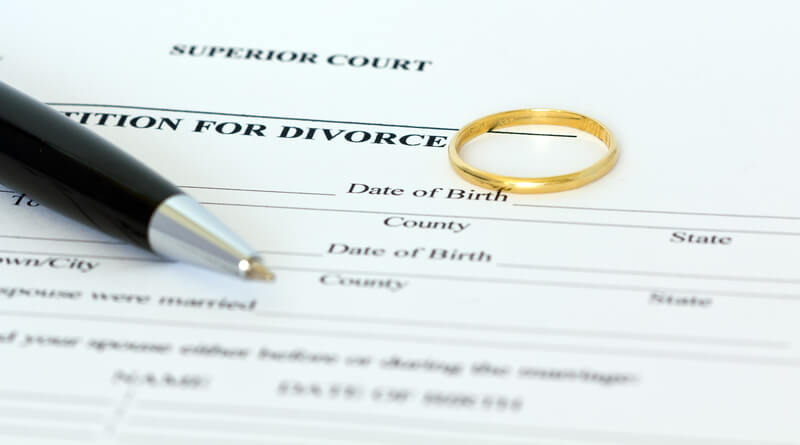If you are unfamiliar with divorce law, terms like fault or no-fault can seem intimidating and threatening. At least, they do not provide much comfort during this emotionally-charged time.
The effects that either has could not be more consequential. The property you take with you or the custody of your children can depend on the differences. If you walk into this civil dispute without knowing some essential facts, you could pay literally and figuratively for the rest of your life. Give yourself five minutes today to examine the reality you may face in court soon.
What Is a Fault-Based Divorce? How Will The Law Affect Your Case?
Divorce is fraught enough without having to focus the liability on one party over the other. Nonetheless, the harsh reality is that most Americans will have to keep this legal doctrine in mind.
A fault divorce is a legal action where one spouse claims that the other is to blame for the souring of the marriage. Accordingly, the person who initiates it must prove their assertions. They need evidence of adultery, cruelty, or other legally-relevant issues. This type of divorce can be more combative since the parties may argue over who is to blame.
Fault-based divorce is the traditional legal way to separate from a spouse. However, it has significant disadvantages since it focuses on placing blame. As a result, having an attorney who understands how state law approaches it is essential to getting through unscathed.
What Is a No-Fault Divorce?
A no-fault divorce means neither spouse has to prove the other carries the fault. Instead, it assumes the marriage was irreconcilable and beyond repair. Either party can start this legal proceeding for any reason, and it is often far less expensive or emotionally charged.
California was the first state to adopt a no-fault divorce system in response to a sharp increase in legal cases. Ronald Reagan signed it into law in 1969. But, notably, he referred to it as his greatest mistake.
Regardless, more than a dozen states have adopted pure no-fault divorce laws. Moreover, every other state offers the choice between filing for a fault or no-fault-based petition.
What Happens During Divorce Proceedings?
The following is an outline of what happens regardless of living in a fault or no-fault divorce state::
- Filing for Divorce: The first step is for one spouse to file a complaint or petition for divorce with the court. This document will state the grounds for the divorce and provide information about the parties involved. A few required details are assets and liabilities or any children born during the marriage.
- Response from the Other Spouse: The other spouse will receive a copy of the complaint and have a chance to respond. They may either agree to the divorce or challenge the allegations.
- Discovery Phase: Both parties must gather and share information to support their assertions. This process can involve exchanging documents and taking depositions.
- Trial Phase: If negotiations or mediation do not result in a settlement, a trial comes next. Both parties will present their case, and the judge will deliver the final decision.
- Decision: The judge will issue a final divorce decree. This order resolves all issues related to the divorce, like property division, alimony, child custody, and child support.
How Does the Law Affect a Fault-Based Divorce?
Each state establishes the details of how a fault-based divorce happens, but there are many similarities. For example, the spouse who is at fault may face negative consequences. They could lose certain rights or property or have to pay alimony.
While fault-based divorce can be more complex and time-consuming, it may be necessary. One example is when a spouse wants to prevent their significant other from receiving alimony or child support. Furthermore, there could be a tremendous amount of property to divide.
The Code of Alabama illustrates how fault-based divorce law can affect your circumstances. Despite placing liability on one of the spouses, it is also an “equitable distribution” state. Due to this Alabama legislation, the court can decide how to divide property however it considers fair. Then, spousal support depends on the following factors:
- Income
- Earning potential
- Standard of living
- Length of the marriage
After considering these details, you may see why reaching a settlement can be crucial. Refusing to participate in mediation can cost both parties dearly when they leave the details to the court.
How Does the Law Affect a No-Fault Divorce?
As mentioned above, there are states where no-fault divorce is the only option. When this is the case, it is known as a pure divorce state, and the impacts on your separation can be substantial. You will find a comprehensive list of no-fault divorce states below the conclusion of this article.
Legislation passed in Washington State offers examples of how pure no-fault divorce can affect your situation. Its related laws are similar to others that have adopted this legal doctrine.
First, it is noteworthy that Washington is a community property state. Under current law, married couples own property, assets, or debts together. Any settlement or decision by a judge must include an even division during a divorce.
But there is an exception for inheritances or gifts. The legal system considers these separate and not subject to equal distribution.
Consult With a Divorce Lawyer in a Fault or No-Fault Divorce State
While the above sections demonstrate the critical differences, there are complex concerns to address. Each aspect of your relationship with your spouse can come into play. On top of that, there may be loopholes or legal precedents that will have a dramatic impact on the outcome.
We have a network of divorce attorneys that can represent you and help you plan for what happens next. You only have to send us a request for legal help or call (866) 345-6784 to get started. Contact us to schedule a consultation today!

